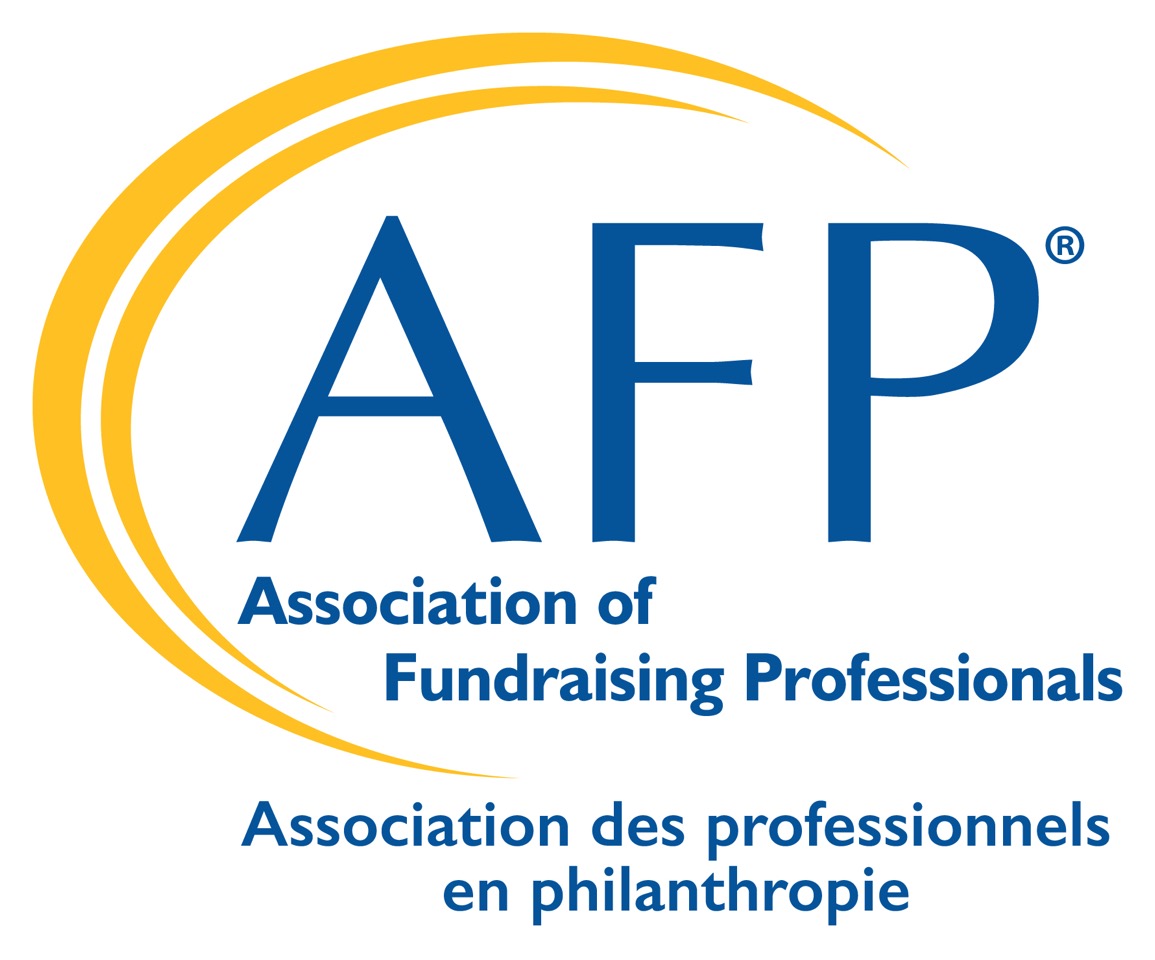Canadian Donors Giving More to Charity

(Toronto, Ontario) Canadian donors gave almost $1000 to charity, on average, according to the 2021 What Canadian Donors Want survey, conducted by Forum Research for the Association of Fundraising Professionals (AFP) Foundation for Philanthropy – Canada and sponsored by Fundraise Up.
Read the Report (Please note: The French edition of the What Canadian Donors Want report will be available mid-November.)
The survey, which featured 1,561 Canadians age 18 or older who have given to charity in the past and were surveyed in April 2021, found that 76% of respondents gave to charity over the past 12 months. Of those who gave, 49% contributed $200 or less, and 51% gave more than $200, with the average gift size being $965.
A remarkable 85% of respondents who made a contribution gave to more than one cause, with 22% giving to 4-5 charities and 23% supporting six or more causes. The top three causes for donations are children/youth issues, disease/medical conditions and food banks—with more than 30% of donors having given to those types of organizations.
Overall, Canadian donors are more confident in the charitable sector than ever before, with almost nine in ten respondents (87%) saying they’re confident in the organizations that comprise the charitable sector. That figure represents a nine-point increase from 2017. In addition, confidence in the charitable sector is significantly higher than confidence in the private sector (69%) or the public sector (65%).
“It’s very gratifying and exciting to see these figures as I reflect on the challenges that charities and all Canadians have endured over the past 12 months,” said Susan Storey, CFRE, chair of the AFP Foundation for Philanthropy – Canada. “That we have seen so many Canadians continuing to support charities through the pandemic—and to remain confident in the work they do—is a testament to the daily dedication of charities and the immense impact they have across Canada, as well as to the generosity of Canadian donors. With the pandemic, it would have been easy for Canadians to only look inward, but we have remained sensitive to the needs of our neighbors and our communities, and we’ve come together to help each other through these tough times.”
Volunteerism Drops
In contrast to increases in giving, volunteering rates among donors were much lower. Just 23% of respondents indicated they had volunteered over the past 12 months, and those who did spent an average of 71 hours in volunteer service.
The most common reason for not volunteering was related to COVID-19—57% of respondents mentioned this reason when asked why they did not volunteer. Other common reasons were not having time (33%), contributing to charity in other ways (22%) and not knowing where to volunteer or how to start (11%).
“Obviously 2020 was an exception with so many people unable to volunteer because of concerns about COVID-19.” said John Gormaly, chair of the AFP Foundation for Philanthropy - Canada Research Committee. “In fact, that a quarter of Canadian donors still volunteered in 2020 is quite impressive and demonstrates the commitment that many Canadians have to helping others. We’ll look at volunteering rates in future versions of the survey to see how we bounce back.”
Being Approached to Give
By far the most popular way donors are approached for a charitable donation is through a cashier who adds a contribution to a bill at a store—78% of respondents had been asked to give in this manner over the past 12 months. Other means of soliciting Canadian donors for a contribution occurred through the mail (56% of respondents reported being approached this way), via an email (54%), a newsletter (49%), a social media post (44%), and a phone call (33%).
However, donors prefer to be asked to give in different ways. Although most respondents say they have been contacted by a cashier over the past 12 months, it is only the 4th most preferred way to be approached for charitable donations (21%). When asked how they liked to be approached, the preferred methods of being contacted were an email (34%) and a letter in the mail (26%).
In addition, 21% of respondents stated that they don’t like to be approached for charitable donations. Respondents who had not given over the past 12 months were more likely to state that they don’t like to be approached for donations (33%) than respondents who had given (18%).
Respondents were split on how they felt about the number of times charities contacted them for a donation. Forty-seven percent of respondents said charities contacted them the right number of times, while an equal percentage (47%) indicated charities contacted them too often. Just seven percent said charities did not contact them enough.
“How charities approach donors is so important because if you get that wrong, you’re likely never going to get your message heard,” said Nic Miller, director of experience at Fundraise Up. “The data here is interesting, because it’s become ubiquitous that Canadians receive too many charitable solicitations, yet the survey results don’t bear that out. More than half of donors feel like charities contact them enough—or actually want more contact! It’s a critical balance, and charities should feel good that they’re doing well while also continuing to drill down and ensure they contact donors and potential donors in the right way according to their specific preferences.”
Perceptions of Charity Roles, Performance
A strong majority of donors possess a great deal of trust in the work of Canadian charities and how they operate. Almost nine in ten respondents (89%) trusted charities to deliver on their mission and goals, and 85% trusted charities to spend their money responsibly. More than three-quarters (77%) trusted charities in how they say they spend money on programs versus administrative support.
Over 7 in 10 respondents (72%) agreed that most charities use the donations responsibly, and almost 7 in 10 (69%) agreed that charities are generally well-managed. In 2017, fewer respondents agreed with these statements: 63% agreed that most charities use donations responsibly and 61% agreed that charities are well-managed.
The survey asked respondents which factors were most important in evaluating a charity’s effectiveness. Almost all respondents thought that a charity’s ability to achieve its mission and goals (99%) and the extent of its impact (98%) are important in evaluating its effectiveness. The charity’s spending on managing the operations (95%) and on fundraising (91%) were found slightly less important.
Just over one in ten respondents (11%) agreed with the statement that charities do not make much difference. When those respondents were asked why they felt that way, the most popular reason was “not sure” (30%). Other reasons given were “too much money going elsewhere” (13%) and “nothing changes/not enough is being done” (11%).
“It’s clear that Canadian donors trust the charitable sector—and not just the work they do, but how they do it as well,” said Storey. “The increase in public trust in how charities use donations and how they are managed is very important, and far outweighs the individual cases of controversy that we hear about in the media. There is strong relevance to the work of charities, which has been amplified during the pandemic. It is good to see that Canadian donors recognize that almost all charities act in accordance with laws and ethical standards, like the AFP Code of Ethics for fundraising. We must continue to demonstrate these shared values.”
Looking Ahead
Almost nine in ten respondents (87%) indicated they were likely to give over the next 12 months. In addition, a majority of donors plan to donate about the same amount (66%) or more (17%) over the next 12 months compared to the amount given over the past 12 months. A quarter (24%) of those who had not given over the past 12 months indicated they will not give over the next 12 months either. That figure was only two percent for respondents who had given over the past 12 months.
Overall, 57% of donors stated that they may increase, or that they would definitely increase, the amount of their donations if the government were to increase the tax credit for charitable giving. Respondents who have not given over the past 12 months were more likely to state that the increase in the tax credit would have no impact on the amount they would donate (54%) compared to respondents who have given (39%).
Nearly half of respondents mentioned the organization’s website (47%) and general online search (46%) as the sources where they find information about the charities they support. Facebook is the most mentioned social media platform actively used by respondents, followed by Instagram. Noticeably, while LinkedIn was not mentioned in the 2017 survey, it has become the third most actively used social media account in 2021 (22%).
“The future is looking very strong for Canadian charities right now, and government should be looking at this data,” said Gormaly. “Over half of respondents said an increased tax credit would spur them to give more, and given that we’re still getting over the pandemic, charities could use that increased support. In fact, 71% of donors agreed that the government should provide financial support for charities to ensure their recovery post-COVID, and increased tax credits for charitable giving can be an important part of that recovery.”
About the Survey
The 2021 What Canadian Donors Want Survey was based on a poll conducted between April 9 and April 30, 2021, on behalf of the AFP Foundation for Philanthropy - Canada. For this survey, a sample of 1,561 Canadians aged 18+ and who made charitable contributions in the past was interviewed. Weighting was then employed to balance demographics to ensure that the sample's composition reflects that of the adult population according to Census data and to provide results intended to approximate the sample universe.
The precision of Forum Research online polls is measured using a credibility interval. In this case, the poll is accurate to within ±2.48 percentage points, 19 times out of 20, had all Canadian adults been polled. The credibility interval will be wider among subsets of the population. All sample surveys and polls may be subject to other sources of error, including, but not limited to coverage error and measurement error.
Thank you very much to the following donors who made this research possible.
- Fundraise Up (Title Sponsor)
- CAGP Foundation
- Michael Decter
- Hospital Development and Education Fund of Canada
- Scott Decksheimer, CFRE
- AFP AB, Calgary & Area Chapter
- AFP AB, Edmonton & Area Chapter
- AFP BC, Greater Vancouver Chapter
- AFP BC, Okanagan Chapter
- AFP BC, Vancouver Island Chapter
- AFP Manitoba Chapter
- AFP Newfoundland & Labrador Chapter
- AFP Nova Scotia Chapter
- AFP ON, Central Chapter
- AFP ON, Golden Horseshoe Chapter
- AFP ON, Greater Toronto Chapter
- AFP ON, Ottawa Chapter
- AFP ON, South Eastern Chapter
- AFP Quebec Chapter
- AFP SK, Saskatoon Chapter
- AFP SK, South Saskatchewan Chapter
- The many donors of the AFP Foundation for Philanthropy – Canada Every Member Campaign
Since 1960, the Association of Fundraising Professionals (AFP) has been the standard-bearer for professionalism in fundraising. The association works to advance effective and ethical philanthropy by providing advocacy, research, education, mentoring, collaboration and technology opportunities for the world’s largest network of professional fundraisers. AFP’s 26,000 members in more than 240 chapters raise over $100 billion annually for a wide variety of charitable organizations and causes across the globe. For more information, go to www.afpglobal.org.
As the philanthropic arm of AFP, the AFP Foundation for Philanthropy – Canada supports many programs and services through its fundraising efforts. Fulfilling the promise of philanthropy by funding programs and services in the areas of research, diversity & inclusion, supporting the profession and leadership. To find out more, please visit www.afpglobal.org.


